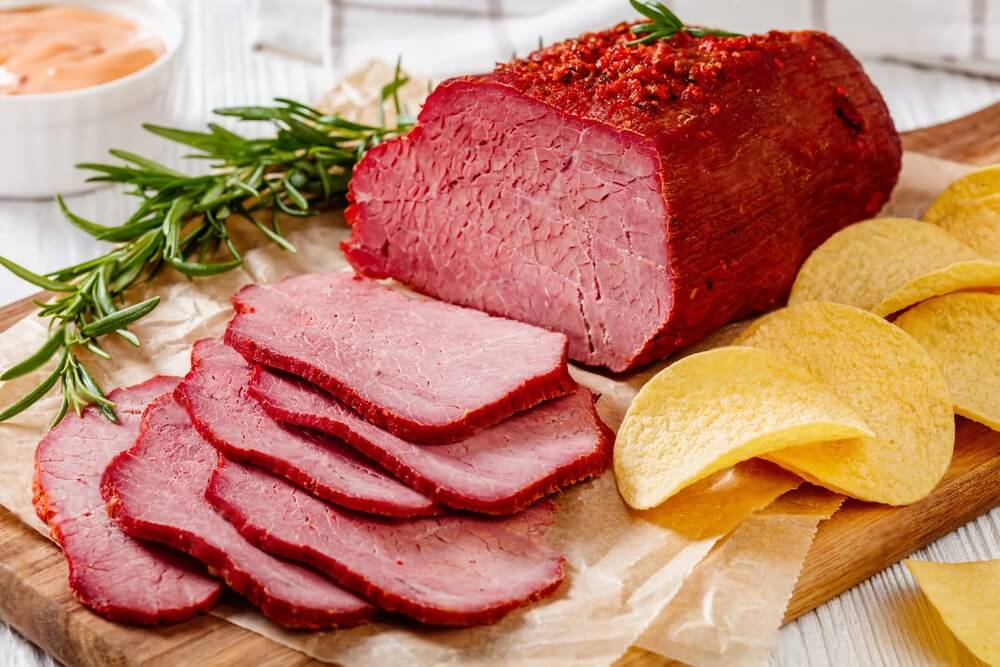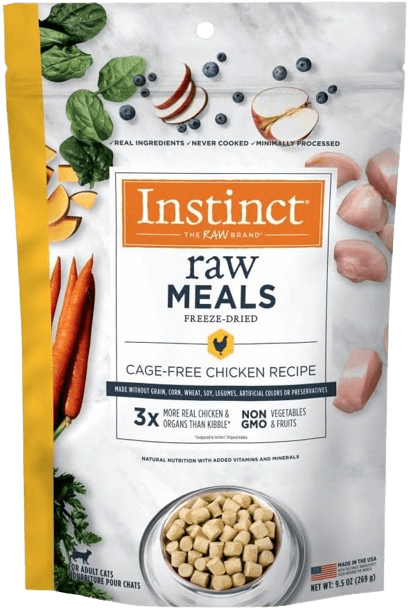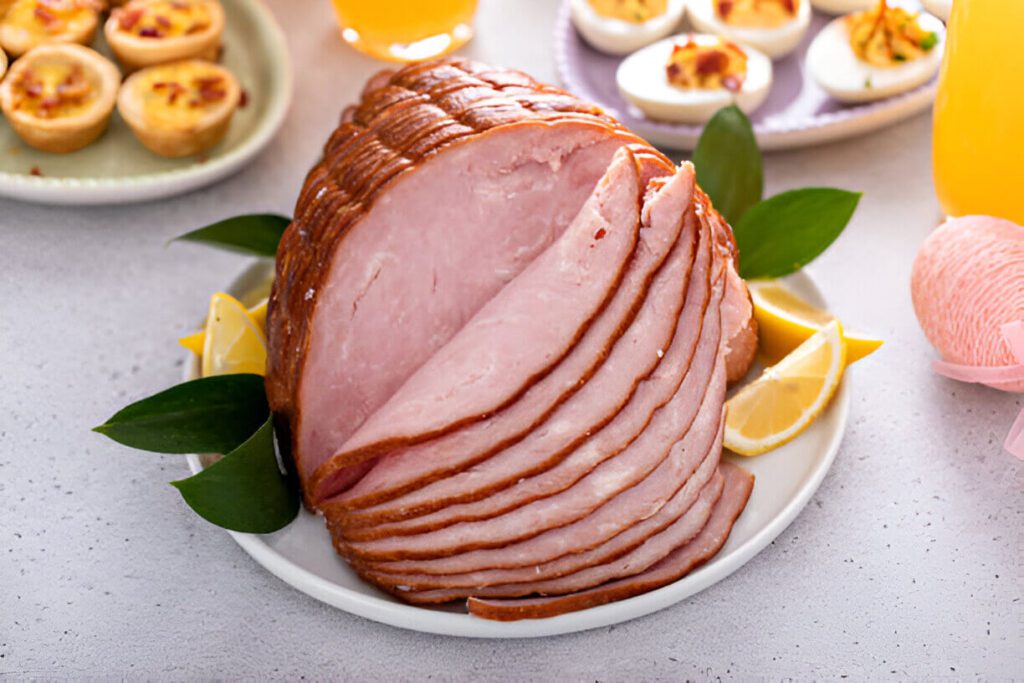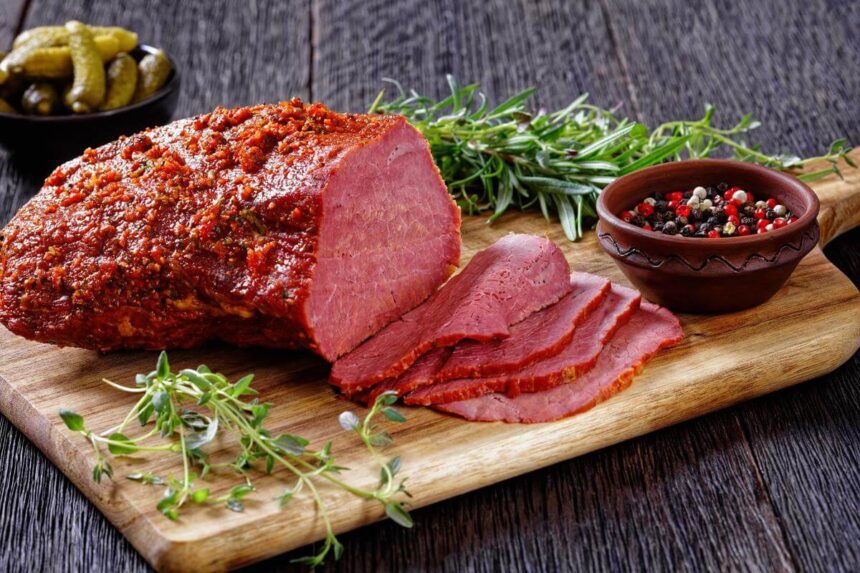So, you’re munchin’ on that big ol’ pastrami sandwich, and there’s your cat, giving you those big, irresistible eyes, practically begging for a bite. But can cats eat pastrami? I mean, they love meat, right? It’s got to be okay, right? Before you slide a slice of that tasty meat their way, let’s break down what’s really going on here, for the sake of our furry pals.
What is Pastrami?
Alright, let’s start with the basics. Pastrami—it’s that delicious, salty, spiced meat we all know and love, usually nestled between slices of rye bread, maybe with some mustard if you’re feeling fancy. But where does it come from, and what’s in it?
Pastrami is essentially cured meat, most often made from beef brisket, but sometimes turkey or lamb. The meat is brined—yep, soaked in a salty solution—then seasoned with a mix of spices like black pepper, coriander, mustard seeds, garlic, and a bunch of other good stuff. After that, it’s smoked and steamed to tender, juicy perfection. Sounds tasty, right? For us, yeah! But for your cat? Hmm, maybe not so much.
Can Cats Eat Pastrami?

Let’s get one thing straight—cats are obligate carnivores, which means they need meat to survive. Their bodies are designed to get nutrients from animal protein, not from plant-based foods or the loads of salt and spices that come with something like pastrami. That’s where the problem starts.
High Sodium Content
One of the biggest issues with pastrami is its sodium content. To put it bluntly, it’s loaded with salt. A little bit of salt might not sound too bad, but here’s the thing—cats don’t handle sodium the way we do. Too much can mess up their whole system. Sodium ion poisoning, while it sounds fancy, is seriously dangerous and can cause vomiting, diarrhea, tremors, and even seizures in cats. And pastrami? It’s packed with enough salt to make a cat’s kidneys go into overdrive.
Spices and Seasonings
I can’t stress this enough—garlic and onions are toxic to cats. And guess what? Pastrami is often seasoned with garlic powder and onion powder, along with a bunch of other spices that might not sit well with your cat’s stomach. Even in small amounts, these can cause serious health issues. Garlic and onions, in particular, are big-time toxic to cats. They can damage your cat’s red blood cells, leading to something called hemolytic anemia—a fancy way of saying your cat’s blood can’t carry oxygen the way it should. It’s not good—not good at all.
Plus, many of the other seasonings, like black pepper and mustard seeds, can irritate your cat’s digestive system, leading to vomiting, diarrhea, and more.
Preservatives
Processed meats like pastrami often contain preservatives such as nitrates and nitrites, which can be harmful to felines if consumed in large amounts.
Fat Content
Pastrami is a fatty meat, and cats require a controlled amount of dietary fat for optimal health. Excessive fat consumption can lead to obesity and related health issues.
Taurine Deficiency
Pastrami does not contain significant amounts of taurine, a crucial nutrient for cats. Prolonged taurine deficiency can lead to serious health problems, including heart disease and vision impairment.
What Happens If My Cat Eats Pastrami?

Alright, let’s say your cat already snagged a piece of pastrami before you could stop them. Now what? Should you panic? Well, maybe not, but you should definitely keep an eye on them. A tiny bit of pastrami probably won’t cause immediate harm, but that doesn’t mean you’re in the clear.
Watch for Symptoms
After your cat eats something questionable, it’s all about playing the waiting game. Keep an eye out for any signs that your cat might be having a bad reaction. Look for:
- Vomiting or diarrhea
- Excessive drooling
- Lethargy or weakness
- Loss of appetite
- Tremors or shaking
If you notice any of these symptoms, it’s time to call your vet—no hesitation. It’s better to be safe than sorry.
Why It’s Best to Avoid Pastrami Altogether
Here’s the thing—while one small piece of pastrami might not be the end of the world, it’s really not worth the risk. The potential for sodium ion poisoning, the chance of your cat ingesting toxic spices, and the overall stress on their system just isn’t something you want to gamble with. There are way better options out there for treating your cat to something special.
Healthy Alternatives to Pastrami
So, if pastrami’s off the table (literally), what can you give your cat as a treat? Don’t worry—there are plenty of safe, delicious options that your kitty will love just as much, if not more.
Plain Cooked Meat
Cats love meat. There’s no denying that. But instead of giving them seasoned, processed meats like pastrami, stick to plain, cooked meat. Chicken, turkey, beef—these are all great options as long as they’re prepared simply, without any added salt or spices. Boil or bake the meat, let it cool, and cut it into small, manageable pieces for your cat to enjoy.
Fish
Fish is another hit with most cats. Whether it’s salmon, tuna, or another type of fish, make sure it’s cooked thoroughly and served without any seasoning. A little bit of fish here and there can be a great treat—just don’t overdo it, as too much fish can lead to other health issues.
Dehydrated Meat Treats
If you’re feeling a little adventurous, you can try making your own dehydrated meat treats. Slice up some lean meat, like chicken or turkey, and dehydrate it until it’s chewy and delicious. You can also find pre-made dehydrated treats at the pet store—just make sure they’re free of any added salt or seasonings.
Commercial Cat Food
Choose nutritionally balanced, high-quality commercial cat foods that meet the Association of American Feed Control Officials (AAFCO) standards. Look for formulas with high-quality animal protein as the primary ingredient.
Raw or Freeze-Dried Cat Food
Some cat owners opt for raw or freeze-dried cat food options, which aim to mimic a cat’s natural diet more closely. These diets are formulated to provide the necessary nutrients in a safe and balanced manner.
Instinct Freeze Dried Raw Meals Grain Free Recipe Cat Food

Cat-Specific Treats
If you’re looking to offer your cat a special treat, choose cat-specific treats that are formulated to meet their nutritional needs. These treats often contain ingredients that are safe and beneficial for cats.
Creative Pastrami Alternatives
If you’re feeling creative and want to treat your cat to something special, there are plenty of alternatives to pastrami that are both safe and delicious. Here are a few ideas to get you started:
Chicken Jerky

Chicken jerky is a great alternative to pastrami. It’s easy to make, and cats love it. Here’s a simple recipe:
- Ingredients: All you need is chicken breast.
- Preparation: Slice the chicken breast into thin strips.
- Dehydrate: Use a dehydrator or your oven (at its lowest setting) to dry out the chicken strips. This can take several hours, so be patient.
- Cool and Store: Once the chicken jerky is fully dried, let it cool and store it in an airtight container.
Tuna Treats
Cats and tuna—it’s a match made in heaven. Here’s how to make some simple tuna treats:
- Ingredients: You’ll need canned tuna (in water, not oil), an egg, and some flour.
- Mixing: Drain the tuna and mix it with a beaten egg and a bit of flour until it forms a dough.
- Shape and Bake: Roll the dough into small balls or press it into a mold. Bake at 350°F for about 10 minutes, or until the treats are firm.
- Cool and Store: Let the treats cool completely before giving them to your cat. Store any leftovers in an airtight container.
Salmon Bites
Salmon bites are another fantastic treat that your cat will love. Here’s a quick recipe:
Ingredients: You’ll need cooked salmon, an egg, and a bit of whole wheat flour.
Mixing: Flake the salmon and mix it with a beaten egg and enough flour to make a dough.
Shape and Bake: Roll the dough into small balls and bake at 350°F for about 15 minutes.
Cool and Store: Let the salmon bites cool completely before serving. Store them in an airtight container.
FAQ’s
Can kittens eat pastrami?
Pastrami is not recommended for kittens. Their nutritional needs are very specific, and introducing processed meats could lead to health issues. Stick to a balanced kitten diet tailored to their growth and development.
Can I give my cat a small piece of cooked pastrami as an occasional treat?
While it is generally not recommended to give cats cooked pastrami, if you choose to offer a small piece as an occasional treat, there are a few things to consider.
- Make sure the pastrami is cooked thoroughly without any seasonings, spices, or additives.
- Remove any excess fat and cut the pastrami into very small, bite-sized pieces to avoid choking hazards.
However, keep in mind that even a small amount of pastrami can still contain high levels of sodium and potentially harmful ingredients for cats. It is always best to consult with your veterinarian before introducing any new foods into your cat’s diet.
Is it safe to feed raw pastrami to cats?
Feeding raw pastrami to cats is not recommended due to the potential health risks associated with raw meat consumption. Raw meat can contain harmful bacteria such as salmonella or listeria, which can lead to foodborne illnesses in cats. It is safer to choose cooked, unseasoned lean meats or commercially prepared cat food that meets their nutritional needs.
Can cats eat other types of deli meat?
It is generally not recommended to feed cats other types of deli meat. Similar to pastrami, deli meats often contain high levels of sodium, spices, preservatives, and additives that can be harmful to cats. Additionally, some deli meats may contain ingredients that are toxic to felines, such as onion or garlic powders. It is best to avoid feeding cats deli meats altogether and opt for cat-specific treats or approved lean meats as occasional treats.
Can cats eat smoked ham, smoked turkey?

While smoked meats like smoked turkey or ham may be tempting to share with your cat, they are not recommended. The smoking process often involves the use of seasonings, brines, or marinades that can contain harmful ingredients for cats, such as high levels of sodium, spices, or additives. Moreover, the excessive salt content in smoked meats can lead to dehydration and kidney issues in cats. It is best to stick to a balanced, feline-appropriate diet and avoid feeding cats smoked meat.
The Takeaway—Can Cats Eat Pastrami?
So, Can cats eat pastrami? Sure, your cat could eat a little bit of pastrami and probably be just fine. But just because they can doesn’t mean they should. The risks far outweigh the benefits, and there are so many better, safer options out there for treating your cat.
Stick to What’s Safe
When it comes to your cat’s diet, it’s always better to stick with what’s safe and natural. Keep the pastrami for yourself and treat your cat to something they’ll love just as much—without the risk of sodium overload or toxic spices.
Make Smart Choices for Your Cat
Your cat relies on you to make smart choices when it comes to their food. By sticking to plain, cooked meats and other safe treats, you’re helping to ensure they live a long, healthy, and happy life. And isn’t that what we all want for our furry friends?



